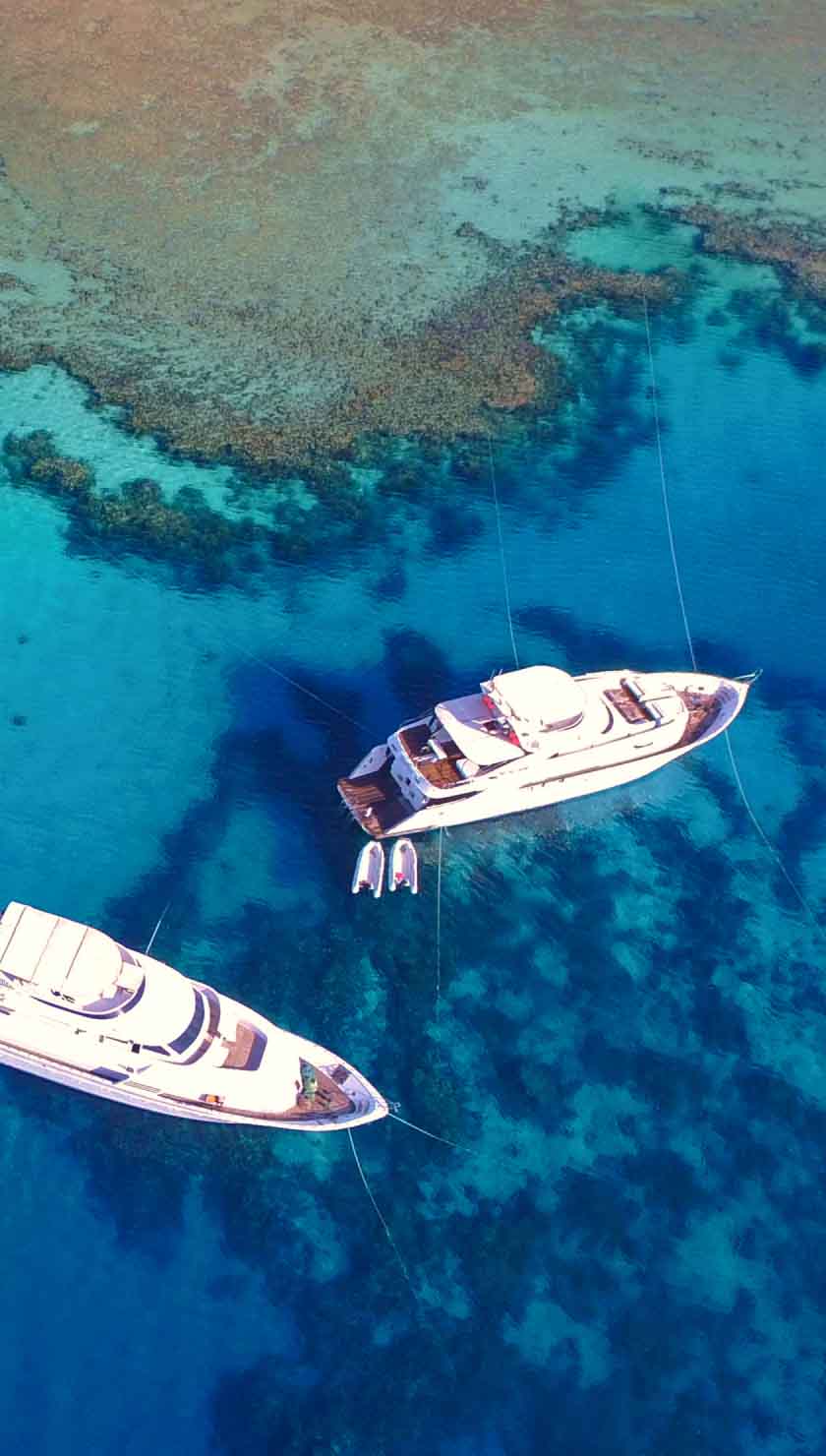Liveaboard Diving in Laamu
What To Expect On A Laamu Atoll Liveaboard
Liveaboards in Laamu Atoll, a Southern Atoll neighbor of Thaa and Meemu, are treated to unexplored terrain with few visitors. Along Laamu’s 48-kilometer coastline, the number of named dive sites doesn’t even reach twenty. With only one major resort, liveaboard boats in Laamu will surely have the water to themselves. Diving in Laamu is notable for good visibility due to the atoll’s relatively low number of open-ocean channels. The clear, calm conditions of Laamuís deep central lagoon (more than 70 meters in some places) offer a great opportunity for underwater photography. Various Maldives liveaboards offer itineraries that visit Laamu Atoll as part of their cruise.
Laamu Atoll Underwater
Liveaboard diving in Laamu Atoll is one way to see some of the best the Maldives offer. The kandus, or channels of the atoll, are filled with sharks and other big fish, like tuna and mobulas. Laamu dive cruises can find turtles, cleaning stations for manta rays, Napoleon wrasse, and Bumphead Parrotfish on various sites within and along the sides of the atoll. Shark species in Laamu include nurse sharks, grey reef sharks, whitetip reef sharks, and Silvertips. High fish biomass is also cited as a key draw of scuba diving in Laamu, and the atoll is known for offering a good smattering of the spectrum of Maldives marine life, from macro subjects like nudibranchs to schools of dolphins.
Dive Sites of Laamu Atoll
Fushi Kandu is a relatively shallow channel with a length of about 250 meters. Five pinnacles span its width and attract huge schools of fish, whitetip reef sharks, and eagle rays. Barracuda, fusilier, jacks, and snapper are also abundant. Check for nurse sharks and stingrays on the sandy bottom between the pinnacles.
Laamu liveaboard diving at Munnafushi Kandu offers the chance to spot pelagic rays, sharks, and tuna, with the latter two competing for meals in the fast flow of current and fish.
For diving with corals and colorful reef fish, Maamendhoo Giri offers classic reef topography of large table corals festooned with parrotfish schools, coral-nibbling butterflyfish, and turtles.
Hithadhoo Corner, Maayu Kandu, and the dive sites around also sport a plethora of fish- tuna, jacks, various shark species, stingrays, eagle rays (and sometimes mantas), Napoleons, Bumphead parrotfish, and more.
Top Tips for Divers
In the Maldives, a new Green Tax of 6 USD per person per night is mandatory for every tourist in the country. Dhivehi is the official Maldivian language.
Liveaboard diving in Laamu Atoll offers the chance to descend where no diver has gone before, so if exploratory dives are your thing, it is worth contacting potential boats ahead of time to ask if and when they would be likely to dive new sites. Gear to bring includes your mask, booties, fins, and dive computer. An ill-fitting mask or pair of fins can make diving virtually impossible, and a dive computer is your most important piece of safety equipment.
Getting to Laamu Atoll
As with other Maldivian atolls, liveaboard diving in Laamu Atoll is the surest way to access the best dive sites, often near uninhabited islands or far from the land altogether. The length of liveaboard itineraries that visit Laamu Atoll usually ranges from 7 to 10 nights, with a budget from 200 to a bit over 300 euros per night. Liveaboard boats in Laamu Atoll almost always include its Southern Atolls neighbors (Meemu and Thaa) and sometimes include the Central Atolls. A few even add the Deep South Atolls in a north-south traverse that crosses half of the archipelago.
The Maldives capital, Male, is one liveaboard departure location for Laamu Atoll liveaboards, accessible by flights through Dubai, Singapore, and Colombo. However, many other Southern Atolls departure ports exist, including Kadhoo, Koodoo, Laamu, Medhufushi, and Gan. Visitors should take a domestic seaplane to get to these locations from Male; trips are usually around an hour.
Maldives liveaboards offer diving in Laamu Atoll, which is possible all year round. During the northeast monsoon from December through May, calm seas and little chance of rain are the norm. If you are set on seeing certain wildlife, it is best to contact boat operators to ask when and where your favorite creatures might visit the atoll. Laamuís water temperature usually stays between 27 and 30 C, and visibility ranges from 20 to 30 meters.











